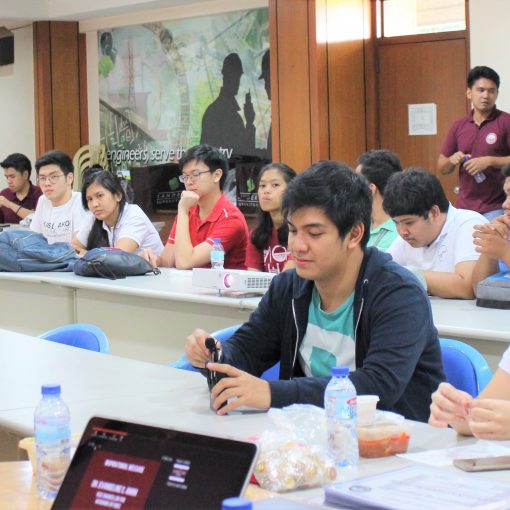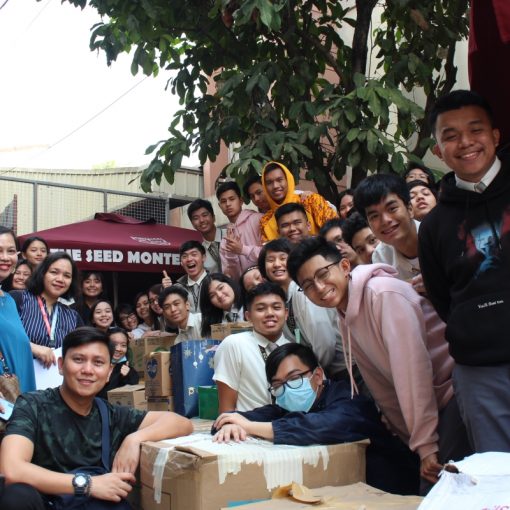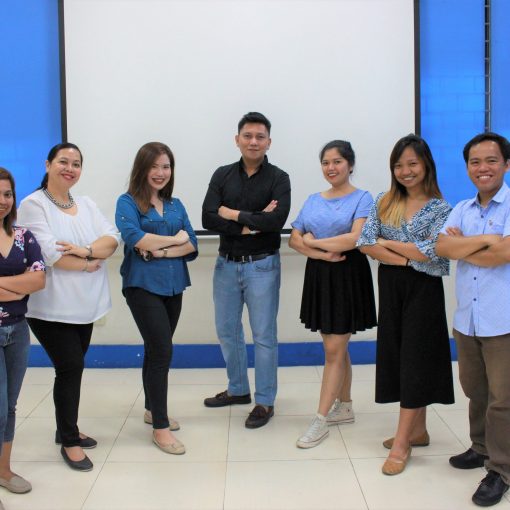A sequel webinar to National Service in the New Normal, Reimagining Community Engagement: A Webinar on NSTP Community Engagement Projects,was hosted by the NSTP Diliman Office last December 7, 2020 via Zoom and YouTube livestream. Featuring five resource speakers from public service and community development sectors, the free webinar aimed to provide participants with valuable training and insights essential for planning and implementing community engagement projects considering the restrictions posed by the pandemic.

NSTP Diliman Director Dr. Jonalou Labor formally opened the event welcoming more than 1,000 NSTP implementers and students representing 180 higher education institutions (HEIs) in the country. Dr. Labor shared that UP Diliman, consistent with UP’s mandate to become a public service university, has provided knowledge products and instructional materials for NSTP Common Module and Component Courses Topics. He pointed out that these materials may be accessed through the NSTP Diliman YouTube Channel. He also encouraged the attendees to visit the NSTP Diliman website to access the Serbisyong Tatak UP radio episodes, also a source of reliable information on NSTP content. He reiterated that UP, as a national university, would continue to extend all the help that it could to NSTP implementing units around the country to provide the best NSTP program possible.
After his opening remarks, Dr. Labor introduced Ms. Francelline Jimenez, a development worker and the Project Manager of Increasing the Resilience towards Natural Hazards (INCREASE) Project for CARE Philippines. In her talk about the Fundamentals of Remote and Blended Community Engagement, she defined remote and blended community engagement. She emphasized that with our current situation, using digital platforms in doing community engagement is inevitable and it is critical to know the purpose of our project and the context of the community we are engaging with in order to decide on the best type of platform to use.
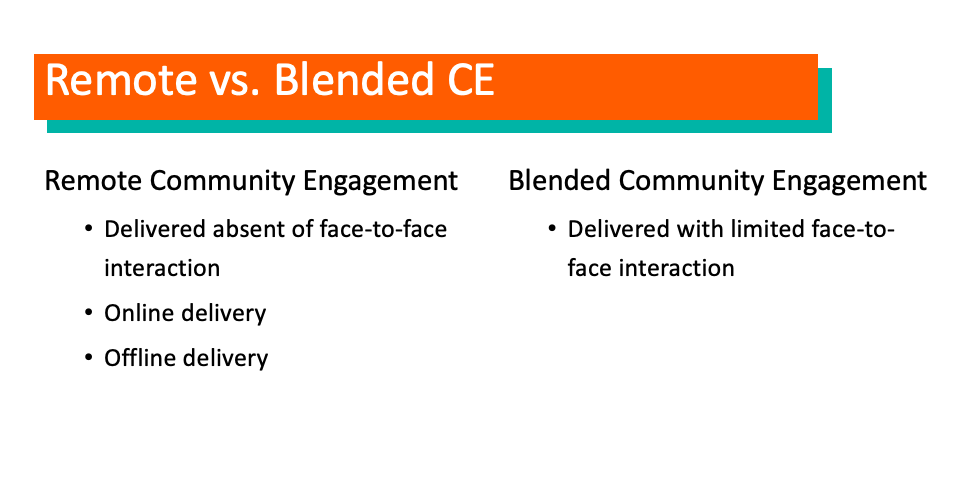
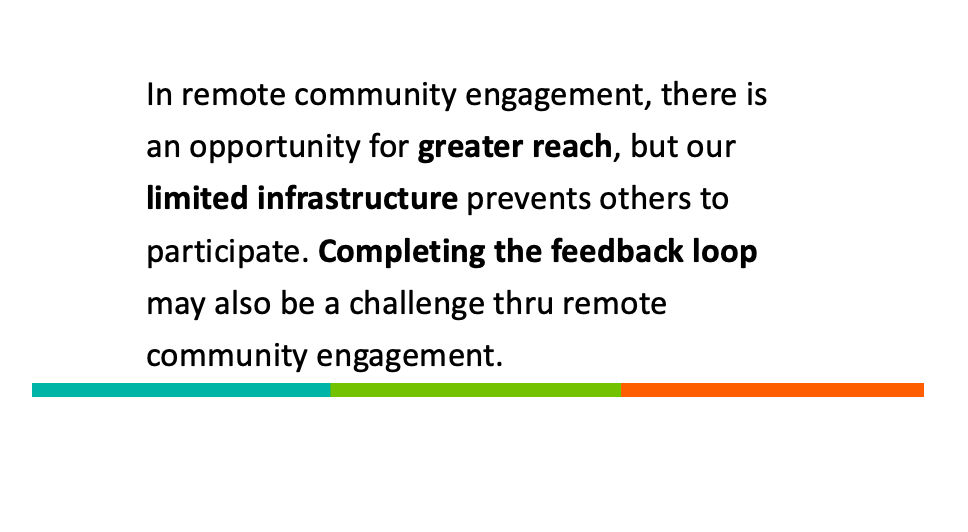
Mr. John Cedric Pineda, Program Manager for Community Engagement and Life Skills for Teach for the Philippines, the second speaker, discussed the Characteristics of Effective Remote and Blended Community Engagement. He enumerated three main factors that affect the success of remote and community engagement: accessibility, inclusivity, and relevance. At the end, he highlighted the importance of understanding the community’s context, involving the community in the process, and collaborating with them towards achieving shared goals because community engagement is meeting people where they are.
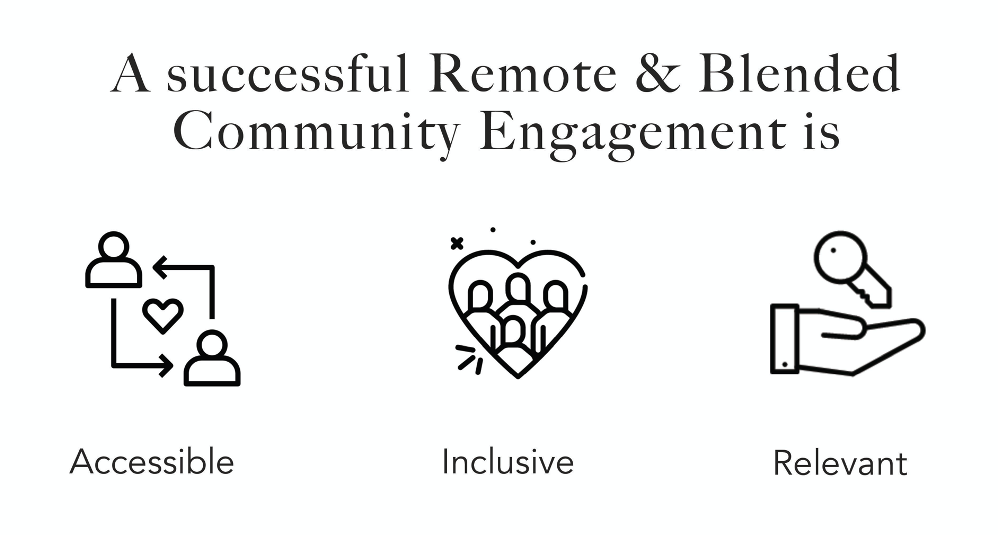
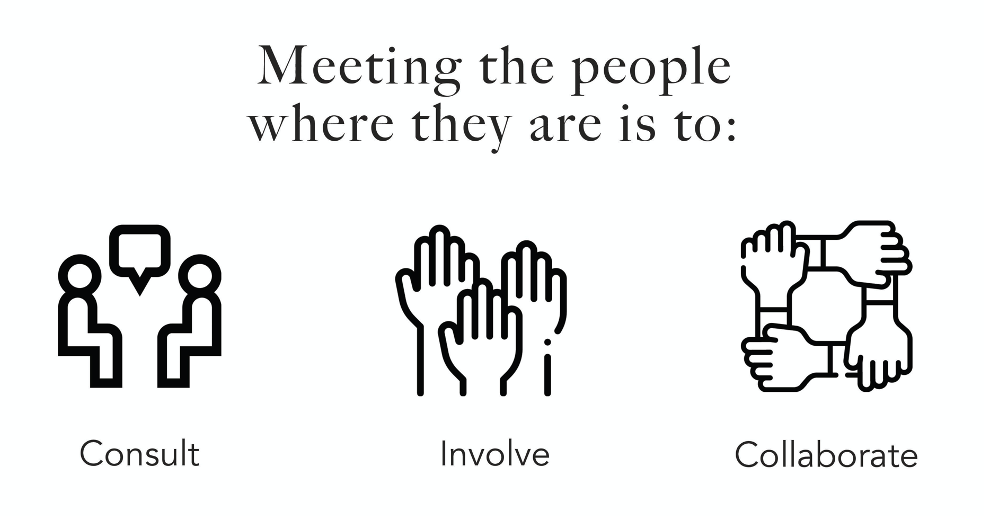
The next three lectures presented models of remote and blended community engagement projects for the different components of NSTP. For Model Remote and Blended Community Engagement Projects for Civic Welfare Training Service (CWTS), Ms. Wynona Ghaile Galvez shared two model projects she is involved in as an indigenous peoples’ rights advocate and as the Project Manager for Governance of Kaya Natin! Movement for Good Governance and Ethical Leadership, Inc. Sandaang Akyat Para Sa Dumagat is a fundraising campaign seeking to help the community of Sitio Anipa while promoting local tourism and culture. She shared three opportunities for replication such as psychosocial intervention, technical assistance, and network and communication support that NSTP implementers and students can adopt. On the other hand, Bangon Luzon provided relief aid and assisted in rehabilitation efforts for typhoon victims in Bicol, Cagayan Valley, and Quezon Province through over 70M worth of cash donations and other in-kind donations. She ended the presentation by highlighting that collaboration, connectedness, and ideating long-term in working with communities in today’s context are important.
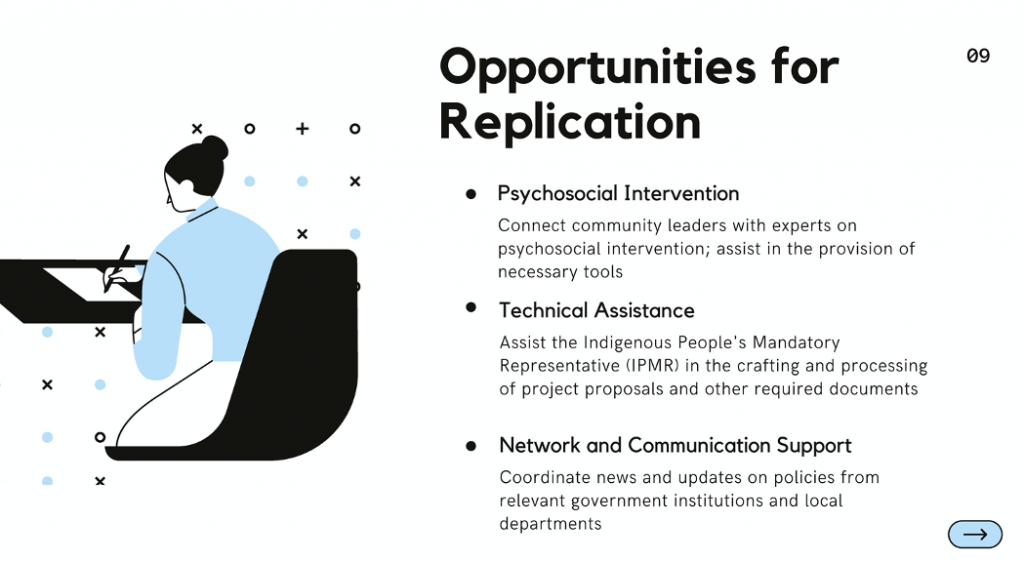
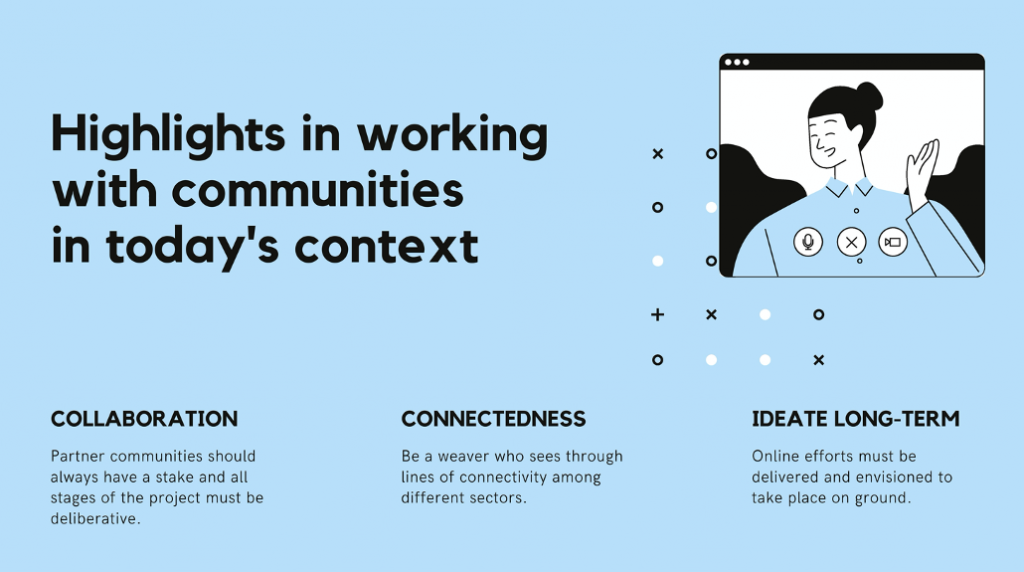
For Model Remote and Blended Community Engagement Projects for Literacy Training Service (LTS), Mr. Reinald Jay Belen who co-founded Super Readers Squad, an organization which promotes literacy at home, shared their capability building program called My First Teacher. The project aims to empower parents in teaching reading at home. He enumerated the different ways in doing their project such as providing parents with reading materials and other resources for free, facilitating training and seminars to parents and partners online or face-to-face, forging partnerships with different organizations, private individuals and school administrators, and calling for donations to support the program. He also shared four considerations in crafting and implementing a project: creativity and innovation, replicability, effective use of resources, and impact of the project. Lastly, he emphasized the importance of leading the change in the education sector.
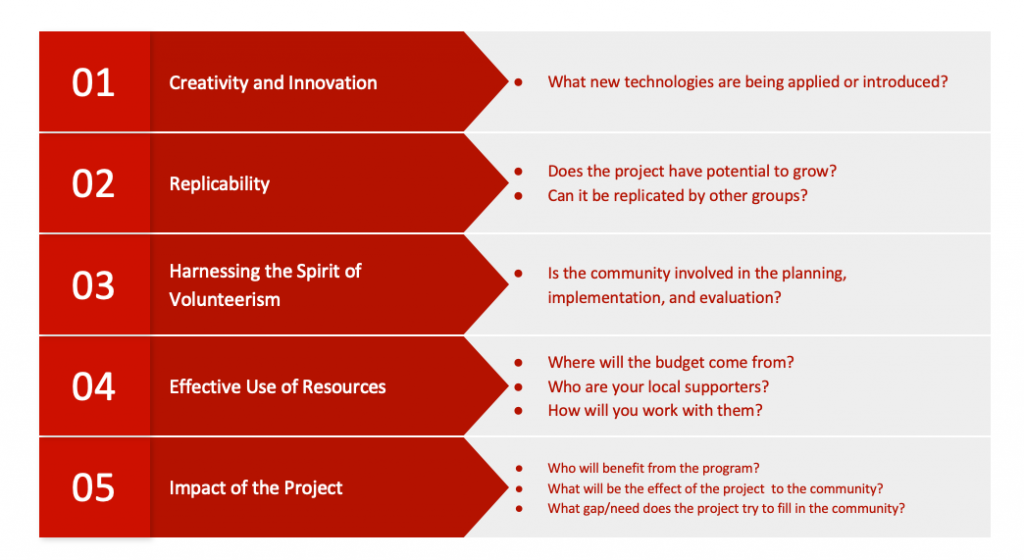
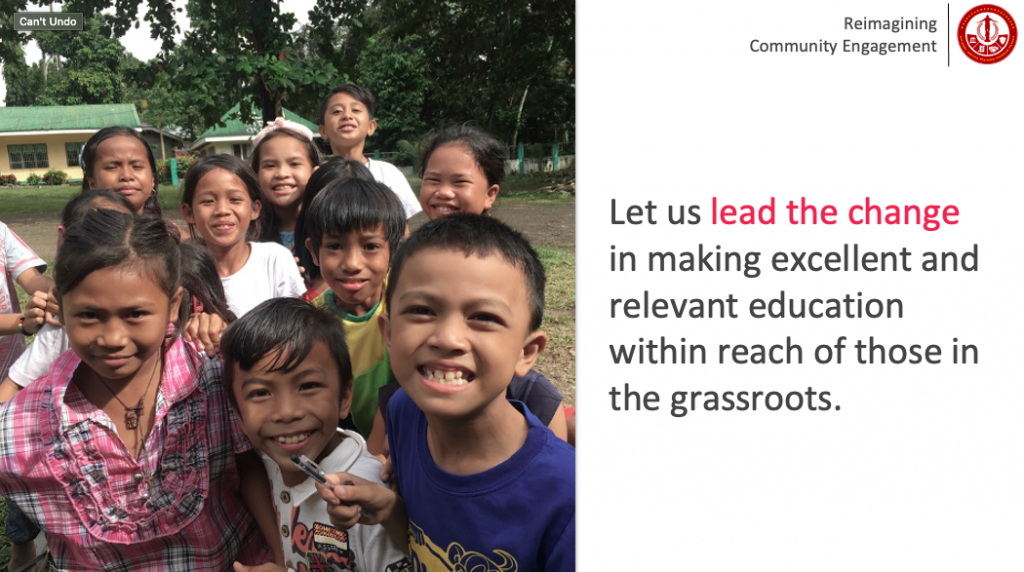
For Model Remote and Blended Community Engagement Projects for Reserve Officers’ Training Corps (ROTC), Dr. Rodrigo Angelo Ong, a renowned medical professional and Commodore of the Philippine Coast Guard Auxiliary, shared the activities he personally coordinated with the uniformed personnel and ROTC of UP Diliman in response to the COVID-19 pandemic and recent typhoons. He stressed the importance of community organizing where ordinary people come together to achieve social change. Moreover, he emphasized that even in the confines of our home we can be informal volunteers, who are an important resource in disaster response and who can help in more specialized but non-mission critical tasks. Lastly, he urged the participants to harness the potential of social media platforms in affirming facts and debunking myths especially about COVID-19.
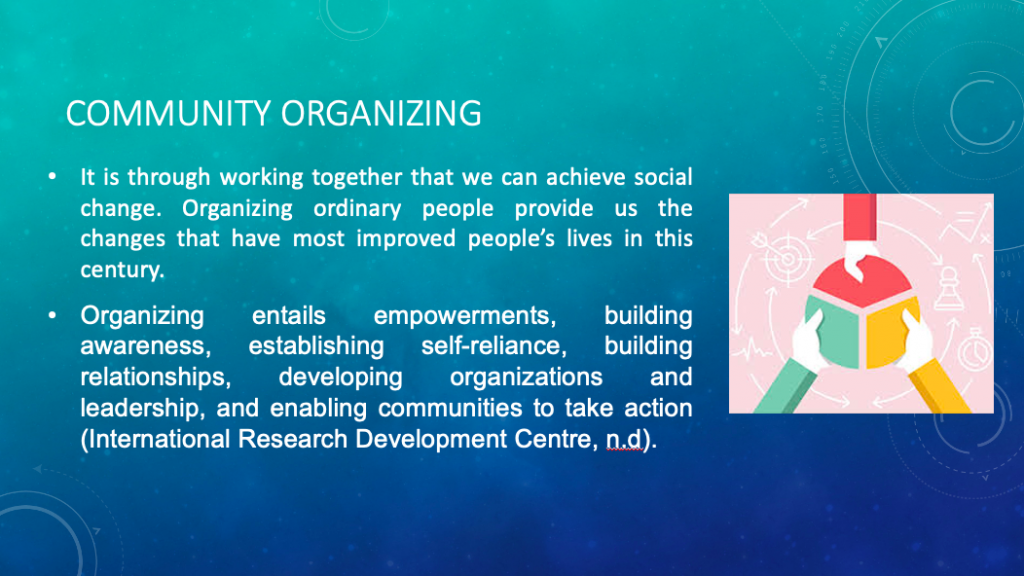
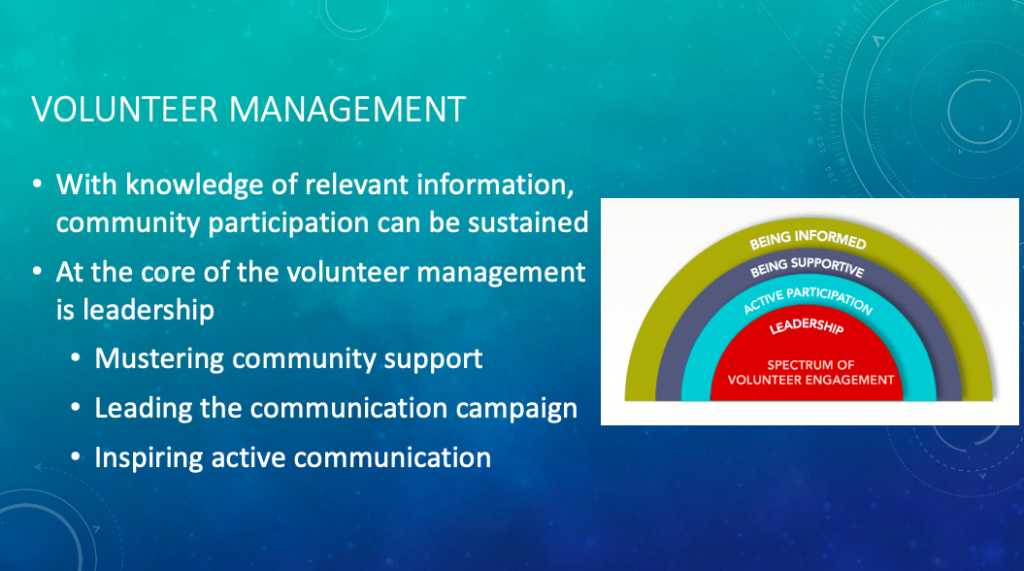
The last part of the webinar gave the resource persons the opportunity to answer the questions raised by participants. The speakers gave the participants more insights, advice, and strategies in planning, implementing, and evaluating community engagement projects.
Asst. Prof. Giovanni Francis Legaspi, NSTP Diliman Office Deputy Director for NSRC, then formally culminated the webinar in his closing remarks as he highlighted the key points of the lectures. In his message, Prof. Legaspi imparted that the number of participating HEIs and SUCs in the webinar is a testament that we share the same drive in realizing the goals of NSTP even through new and more challenging ways and modes. Lastly, he emphasized that UP Diliman and the NSTP Diliman Office are very willing to provide more assistance to NSTP implementers and students in the future.
The NSTP Diliman Office is mandated to administer, manage, and coordinate all NSTP offerings and activities in UP Diliman. The Office commits itself to organizing programs and offering learning opportunities to implementers and students for the development of NSTP courses in the University and beyond.
by Jillian Santos and Pauline Santos


